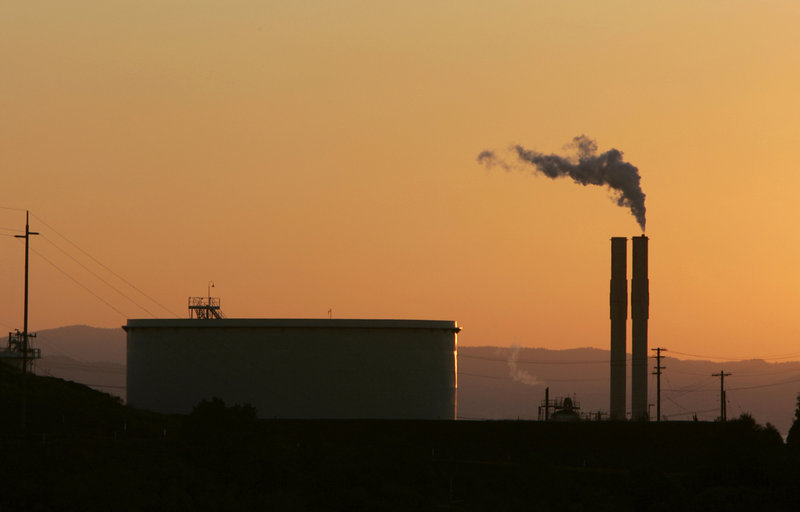WASHINGTON – The Environmental Protection Agency announced Thursday that it would regulate greenhouse gas emissions from power plants and oil refineries next year, targeting the nation’s two biggest sources of carbon dioxide.
The move, which comes as part of a legal settlement with several states, local governments and environmental groups that have sued EPA under the Bush administration for failing to act, highlights the Obama administration’s intent to press ahead with curbs on carbon despite congressional resistance.
Collectively, electric utilities and oil refineries account for almost 40 percent of U.S. greenhouse gas emissions: Under the agreement, EPA will propose new performance standards for power plants in July 2011 and for refineries in December 2011, and will issue final standards in May 2012 and November 2012, respectively.
“We are following through on our commitment to proceed in a measured and careful way to reduce GHG pollution that threatens the health and welfare of Americans, and contributes to climate change,” EPA Administrator Lisa Jackson said in a statement. “These standards will help American companies attract private investment to the clean-energy upgrades that make our companies more competitive and create good jobs here at home.”
In a media call with reporters, Gina McCarthy, EPA’s assistant administrator for air and radiation, emphasized that the agency was at the “early stage” of regulating greenhouse gases from the two sectors and could not spell out how significantly the new rules will reduce the nation’s contribution to global warming.
“You will see measurable reductions,” McCarthy said. “It’s way too early in the game right now to talk about what the standards will look like . . . We set the standards, and the industries themselves figure out the most cost-effective way to meet those standards.”
Power plants account for more than 2.3 billion tons of carbon dioxide emissions each year, more than any other industry. Oil refineries rank well behind that as the nation’s second-largest source, with emissions equivalent to more than 200 million tons of carbon dioxide a year.
McCarthy said EPA would require utilities and refineries to use “what technologies are available” to curb their carbon output and would not set an overall limit on greenhouse gases such as the cap-and-trade bill passed by the House in 2009, which died in the Senate.
“This is not about a cap-and-trade program,” she said. “It is not in any way trying to get into the area where Congress will be establishing law at some point in the future, we hope.”
But Charles Drevna, president of the National Petrochemical & Refiners Association, said that the proposal EPA was envisioning is unrealistic and that his industry will urge lawmakers to block EPA’s move.
“There is no best available technology. The only thing you can do is cut production,” Drevna said, adding that his group and others would appeal to both Republicans and Democrats to halt the new rules. “I see bipartisan concern as to where EPA and the administration are attempting to take climate regulation.”
Send questions/comments to the editors.



Success. Please wait for the page to reload. If the page does not reload within 5 seconds, please refresh the page.
Enter your email and password to access comments.
Hi, to comment on stories you must . This profile is in addition to your subscription and website login.
Already have a commenting profile? .
Invalid username/password.
Please check your email to confirm and complete your registration.
Only subscribers are eligible to post comments. Please subscribe or login first for digital access. Here’s why.
Use the form below to reset your password. When you've submitted your account email, we will send an email with a reset code.